
How to make your money work for you
Award-winning investment advisors Alexandra (BA ’10) and Rosemary Horwood (BA ’12) share their financial expertise.

Award-winning investment advisors Alexandra (BA ’10) and Rosemary Horwood (BA ’12) share their financial expertise.
By Claire Mastrangelo Office of AdvancementSisters Alexandra (BA ’10) and Rosemary Horwood (BA ’12) have lit up the financial services sector over the last decade. The proud Arts alumni credit Waterloo’s co-op program with giving them a head start in their career. Since joining the workforce, the two of them have earned top honours from Wealth Professional Canada, including the 2017 Advisor Rising Star Award for Rosemary and, for Alexandra, the 2019 Canadian Advisor of the Year.
Now, Alexandra and Rosemary are sharing investment advice with their fellow Waterloo alumni as part of Financial Literacy Month.
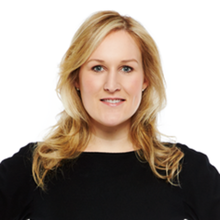
Rosemary Horwood (BA '12)
What do people get wrong about investing?
Rosemary: Someone will say to me, “My uncle made 300% on a marijuana stock. I want to invest like that.” But the reality is, they don't have the same goals as their uncle, and they may not have the same risk tolerance.
Alexandra: First, you need to ask, “What do I want to accomplish that will require planning, money and time, and when do I want to achieve those goals?” Then, you work backwards from there.
Should people invest differently at different stages of their career?
Rosemary: Definitely. People should invest differently throughout their investment career as well. If you think about your professional career, the first couple of years are usually fairly administrative: you’re not given that much responsibility. The beginning of your investment career should look like that too. You should focus on working hard to save, and making lower-risk investments so that you can get some experience. Once you have that experience, then you can start to branch out a little bit and take on more risk.
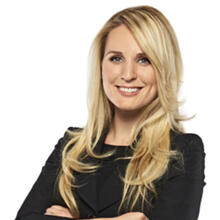
Alexandra Horwood (BA '10)
Where should a new grad begin?
Alexandra: Traditionally, investors have thought that because young people have a long road ahead of them, they can take more risk because they don't need the money until later. Now, we’re seeing that young people tend to be more risk averse. They’ve seen what their parents have gone through as a result of the recession, and they’re uncomfortable with volatility. Everyone needs to trust their gut: if volatility makes you uneasy, don't subject yourself to that. You should be able to sleep at night.
What questions should people ask about their investments as they approach retirement?
Rosemary: They should define their vision for retirement. For example, I’d like to go away for the winter, enjoy time with my family and serve at my local church. I’d also like to work part time — probably at Swiss Chalet, because that’s my favourite place — and spend lots of time outdoors. Now, if someone can articulate their goals, like I just did, we can usually work backwards from there and figure out how much money someone would need to be able to fulfill their vision.
What if someone wants to retire early? What should they do differently?
Alexandra: They need to save more and pay off debt faster. In this environment of low interest rates, people are taking on a lot of debt, but they’re not focused on paying it down. It’s important to do that.
Everybody needs to have a current will and power of attorney, as well. I recommend that even to my young clients: as soon as they own a home or company, they really have to have a will.
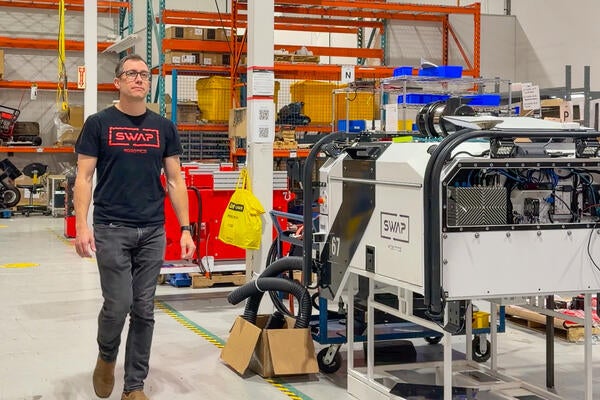
Read more
Swap Robotics is transforming outdoor work with automation, sustainability and clean energy innovation
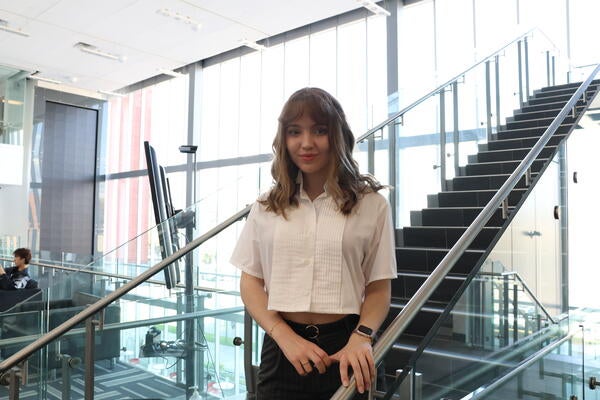
Read more
Fourth-year Global Business and Digital Arts student leverages artificial intelligence to fight food inflation, saving families up to $5,000 each year
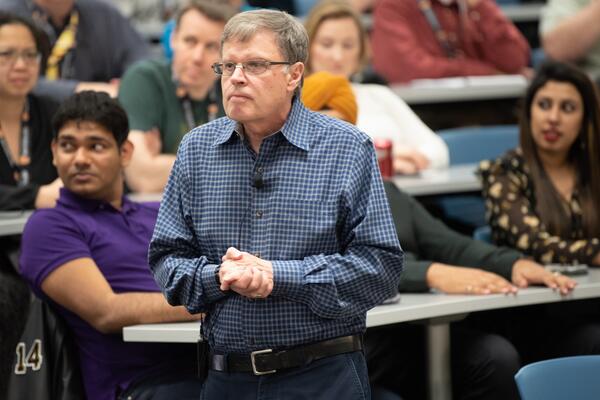
Read more
For more than four decades, Waterloo professor Larry Smith has helped build the University's reputation for innovation and entrepreneurial excellence
The University of Waterloo acknowledges that much of our work takes place on the traditional territory of the Neutral, Anishinaabeg, and Haudenosaunee peoples. Our main campus is situated on the Haldimand Tract, the land granted to the Six Nations that includes six miles on each side of the Grand River. Our active work toward reconciliation takes place across our campuses through research, learning, teaching, and community building, and is co-ordinated within the Office of Indigenous Relations.